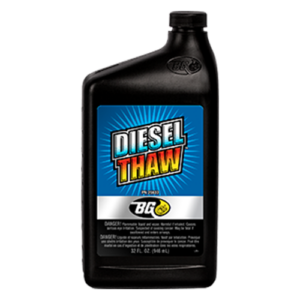As diesel truck owners, we know that cold weather can be tough on our vehicles. Did you know that extreme temperatures can cause engine issues and decrease fuel efficiency by up to 20%? That’s why it’s crucial to prioritize cold weather diesel truck maintenance. In this article, we will delve into the key components that require attention, including block heaters, batteries, anti-gel additives, glow plugs, and engine oil. By following these tips, we can ensure optimal performance and longevity for our diesel trucks during the winter season.
Importance of Block Heaters
Using block heaters is crucial for ensuring easier starting in cold temperatures. Block heaters provide several advantages when it comes to winter driving. They warm the engine block, which helps to reduce the strain on the battery and makes starting the engine easier. This is especially important for diesel trucks, as they require higher temperatures to start compared to gasoline engines. Installing a block heater is relatively simple. It involves attaching the heater element to the engine block and connecting it to a power source. It is important to follow the manufacturer’s installation instructions to ensure proper functioning. Additionally, it is recommended to use a timer to control the block heater’s operation, as leaving it on for too long can lead to unnecessary energy consumption. By using block heaters, drivers can enjoy the benefits of easier starting and smoother operation in cold weather conditions.
Extending Battery Life in Cold Weather
Fortunately, there are effective ways to extend battery life in cold weather. One method is by using insulating battery covers. These covers help to retain the heat generated by the battery, preventing it from dissipating into the cold air. By keeping the battery warm, the covers help to maintain optimal battery performance and prolong its lifespan. Additionally, there are some battery maintenance tips that can help to extend battery life in cold weather. Regularly checking the battery’s charge level and ensuring that it is fully charged can prevent it from freezing and losing power. It is also important to clean the battery terminals and cables to ensure good electrical connections. Furthermore, avoiding excessive use of electrical accessories when the engine is off can help to conserve battery power. By following these tips and using insulating battery covers, diesel truck owners can ensure that their batteries perform optimally even in cold weather conditions.
Preventing Fuel Gelling With Anti-Gel Additives

Maintaining Glow Plugs for Cold Starts

Choosing the Right Engine Oil for Cold Weather
Thankfully, when it comes to choosing the right engine oil for cold weather, we have several options available. In order to ensure optimal engine performance in cold temperatures, it is important to select the best engine oil for your diesel truck. When deciding between synthetic and conventional oils, it is crucial to consider the advantages of each. Synthetic oil, with its advanced formulation, offers better cold-temperature flow and superior protection against engine wear. It maintains its viscosity even in extremely low temperatures, ensuring proper lubrication throughout the engine. On the other hand, conventional oil may not provide sufficient oil pressure after a cold start, potentially leading to engine damage. Therefore, in cold weather conditions, synthetic oil is often the preferred choice for diesel trucks, guaranteeing smooth running and enhanced engine longevity.
Winter Tire Maintenance for Diesel Trucks

Cold Weather Fuel Efficiency Tips
For better fuel efficiency in cold weather, we can maximize our truck’s performance by following these tips. Firstly, it is important to optimize engine performance in winter temperatures to improve diesel truck fuel economy. One way to do this is by using a block heater to warm the engine block, making it easier to start in cold temperatures. Test the block heater using a multimeter set on ohms, ensuring a reading between 9 and 25 for proper functioning. Additionally, consider replacing glow plugs at the beginning of winter to aid cold starts. Another tip is to use an anti-gel additive to prevent fuel gelling in severely cold temperatures. Lastly, consider switching to a lighter-weight synthetic oil for better cold-temperature flow and regularly change the engine oil and oil filter for smooth running in winter conditions. Optimizing these factors will help improve fuel efficiency and overall engine performance in cold weather.
Cold Weather Diesel Engine Performance Optimization
To maximize our diesel engine performance in cold weather, we need to focus on optimization techniques that enhance fuel efficiency and overall functionality. One key aspect is preventing engine freezing. This can be achieved by using a block heater, which warms the engine block for easier starting in low temperatures. Testing the block heater with a multimeter is crucial to ensure proper functioning. Additionally, optimizing fuel combustion is essential. Glow plugs aid cold starts by heating the combustion chamber, while intake air heater control helps with combustion during cold starts. Regular oil changes, especially with a lighter-weight synthetic oil, ensure smooth running in winter conditions. By implementing these optimization techniques, we can enhance the performance of our diesel engines in cold weather and prevent issues such as engine freezing.


